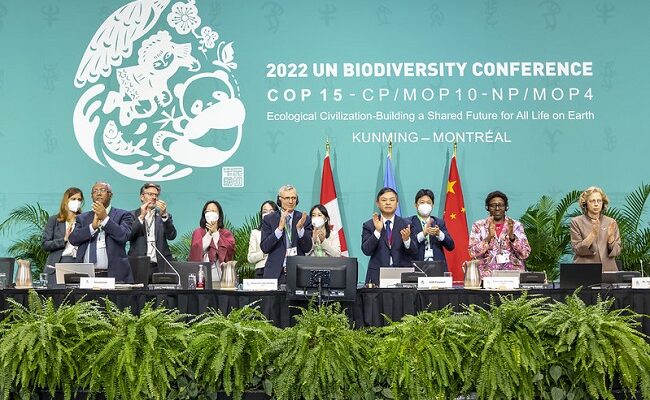In the early hours of December 19, negotiators from the 196 parties to the UN Convention on Biological Diversity rallied to finalise an ambitious, global biodiversity framework inclusive of the 30×30 target and Indigenous Peoples’ rights and recognition, while addressing the cavernous funding gap for biodiversity protection and conservation.
Brian O’Donnell, Director of the Campaign for Nature, said: “At the heart of the agreement is a target to protect and conserve at least 30% of the world’s lands and oceans by 2030. The “30×30” target marks the largest land and ocean conservation commitment in history. It will have major positive impacts for wildlife, for addressing climate change, and for securing the services that nature provides to people, including clean water and pollination for crops. Ocean conservation, which has historically lagged behind land conservation, will now be an equal priority.
“The Kunming – Montreal agreement also has the potential to usher in a new paradigm for conservation, one in which Indigenous Peoples and local communities’ rights are upheld and where they are recognized for the leadership they have provided. We are eager to work with Indigenous Peoples and local communities to center the achievement of this target around their efforts.

“As the world now turns to implement this target, we must remember that achieving 30×30 is more than just reaching a number. Through this global target, the world has committed to increase conservation in the right places and in the right ways. Now the important work begins to ensure that at least 30% of the ocean and at least 30% of the land is effectively conserved, that the most important areas for biodiversity are prioritized, and that the systems of conserved areas are well connected and representative of the world’s diverse ecosystems. We must hold governments to account to fulfill their commitments to increase funding and reform harmful subsidies.
In a statement, the World Wildlife Fund (WWF) said it welcomes the agreement’s target to conserve at least 30% of land, freshwater and ocean globally, while respecting the rights of indigenous peoples and local communities, and recognizing the contributions of indigenous and traditional territories towards the target’s tally.
However, WWF warns that the agreement’s goal of reversing biodiversity loss by 2030 could be undermined if weak language in critical areas such as the protection of intact ecosystems and tackling unsustainable production and consumption is not addressed at the national level.

“Agreeing a shared global goal that will guide collective and immediate action to halt and reverse nature loss by 2030 is an exceptional feat for those that have been negotiating the Global Biodiversity Framework, and a win for people and planet. It sends a clear signal and must be the launch pad for action from governments, business and society to transition towards a nature-positive world, in support of climate action and the Sustainable Development Goals,” explains Marco Lambertini, Director General, WWF International.

ALSO READ FROM NIGERIAN TRIBUNE








